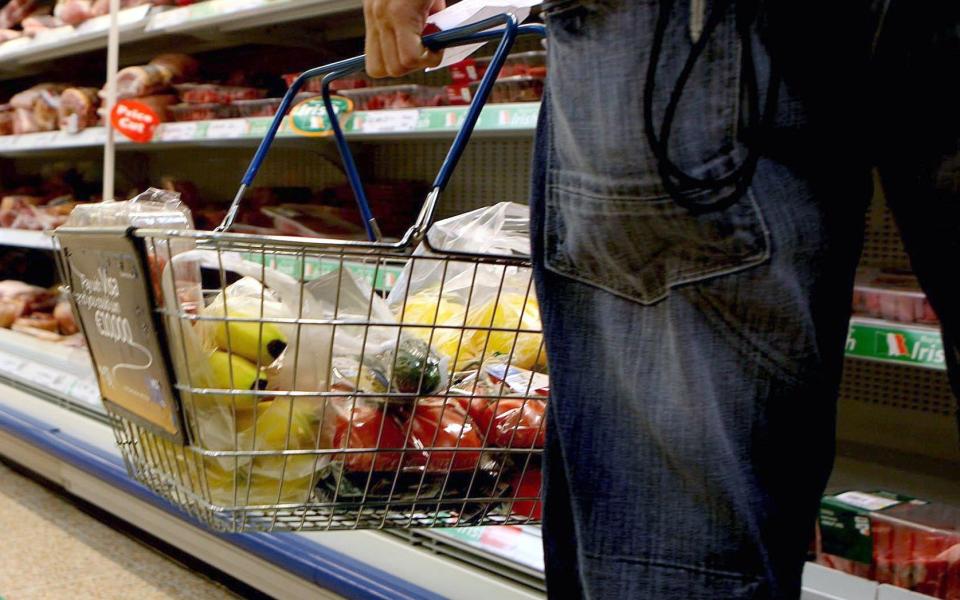Cash-strapped Britons buying food near expiry to save money

Shoppers are turning to food that is just about to go off as they try to beat soaring inflation, new figures show, raising fears that people's health could be at risk.
Nearly two-fifths (38pc) of households bought discounted products nearing their expiry dates in April, according to Barclays.
Sales of so-called “yellow sticker” items, which have their prices cut as they near best before dates, have been on the rise as food and drink prices soar. Food inflation hit 19.2pc in March.
Earlier this year the Office for National Statistics said a fifth of adults were eating food past its use-by date to cope with financial pressures from the cost of living crisis.
The Food Standards Agency has previously warned that desperate families were putting themselves at risk by eating spoiled products and turning off fridges and freezers to keep energy bills down.
Barclays, which tracks the spending of roughly half of Britain’s credit and debit cards, said families were turning to discounted food to help limit the impact of soaring food prices on shopping bills.
Spending on groceries rose by just 5.5pc in April, the bank said, which was far below the rate of inflation in the sector.
Families are also swapping fresh food for frozen produce to manage their spending, with a quarter of Barclays customers doing so last month.
Seven in 10 shoppers said that they were trading down to cheaper products to reduce their shopping bills. Just over a quarter have swapped premium ranges for standard or value products.
Despite cutbacks in the supermarket, spending on plane tickets jumped by 32.1pc last month as families planned summer holidays.
An increase in concert ticket sales, partly driven by the upcoming Eurovision Song Contest in Liverpool, also drove a 12pc jump in spending on entertainment.
Esme Harwood, Director at Barclays, said: “Brits are still searching for ways to reduce spend on essentials so they can enjoy experiences such as holidays, shows and concerts.”
Separate figures from the British Retail Consortium (BRC) showed people were put off buying summer clothing last month by the wet weather.
Helen Dickinson OBE, chief executive of the BRC, said: “Clothing sales underperformed as the poor weather left customers thinking twice before decking out their summer wardrobe.
“While retail sales grew in April, overall inflation meant volumes were down for both food and non-food, as customers continued to adjust spending habits.”
Abbas Khan, an economist at Barclays, said budgets would remain under pressure for the rest of the year.
Mr Khan said: “Going forward, while energy bills are set to fall from the third quarter, higher mortgage rates cloud the outlook as households continue to refinance at significantly higher rates through the year.”

 Yahoo Finance
Yahoo Finance 